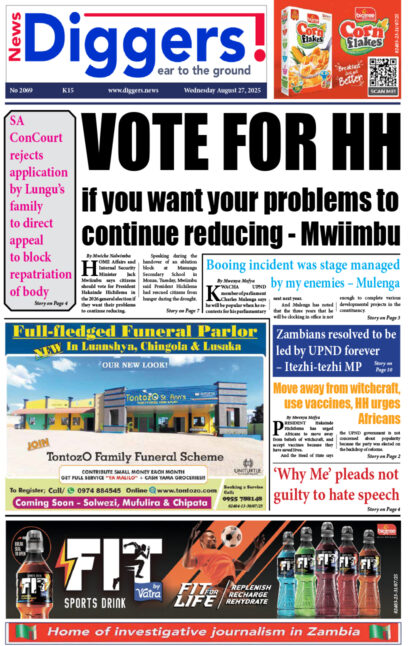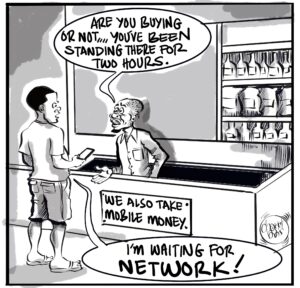Let’s talk about health—real health. Not the kind you see splashed across fitness influencers’ Instagram feeds or promoted in weight loss ads, but the kind that gets overlooked because it’s not trendy or glamorous. I’m talking about diabetes, a condition affecting millions worldwide and yet cloaked in silence, stigma, and misunderstanding.
In Zambia, diabetes is on the rise, with nearly 10% of adults living with diabetes or pre-diabetes, according to the Zambia Demographic and Health Survey. Yet, unlike the openness we see around fitness challenges, detox teas, or weight loss transformations, conversations about diabetes remain hushed, often buried under layers of cultural shame and misinformation.
The result? People delay seeking help, mismanage their condition, or worse—never get diagnosed until it’s too late. As a community, need to change this.
The Stigma of Sugar
When someone says they have ‘the sugar disease’, the reactions often reveal a lack of understanding. “Did you eat too much sugar?” is a common question, alongside assumptions that the person must be overweight, lazy, or somehow responsible for their diagnosis.
These myths create an environment where people feel judged rather than supported. And in Zambia, where community and family connections are central to our culture, fear of judgment can lead to silence.
But diabetes isn’t a punishment for poor choices. Type 1 diabetes, for instance, is an autoimmune condition where the body attacks its insulin-producing cells. It’s not preventable, and it often develops in childhood or adolescence. Type 2 diabetes, while more influenced by lifestyle, also has genetic factors that go beyond diet and exercise.
When we reduce diabetes to a single story—blaming it on sugar or weight—we only perpetuate harmful stories and prevent meaningful conversations that could save lives.
Why We’re Not Talking About It
Misconceptions
One reason for the silence around diabetes is the overwhelming amount of misinformation. Many people still believe diabetes is “caused by sugar,” making those diagnosed feel like they must hide their condition to avoid being labelled as irresponsible.
This stigma is compounded by the fact that diabetes isn’t as visible as other conditions. It is a non-communicable disease (NCD). Unlike a common cold, diabetes doesn’t always come with outward symptoms, especially at early stages. For many, it’s easier to ignore or hide it than to confront it.
Cultural Beliefs/Shame
In many communities of colour, chronic illnesses like diabetes are shrouded in cultural taboos. A diagnosis can be seen as a personal failure or even a curse. People may hide their condition out of fear that others will treat them differently or see them as defected.
This shame extends to practical issues, like injecting insulin in public or explaining dietary restrictions at family gatherings. These small, daily challenges can make people with diabetes feel isolated.
“Health Trend” Divide
While conversations around weight loss and fitness are celebrated, diabetes doesn’t get the same attention. Fitness is often viewed as aspirational. Diabetes, on the other hand, can be wrongly associated with failure and poor choices.
This divide is dangerous. It prevents people from seeing diabetes as a manageable condition and instead frames it as something to be feared or hidden.
The Consequences of Silence
Delayed Diagnoses
Many people with Type 2 diabetes go undiagnosed for years because they don’t recognize the symptoms or feel too ashamed to seek help. This increases the risk of complications like nerve damage, heart disease, and kidney failure.
Poor Management
Even after diagnosis, stigma can prevent people from properly managing their condition. They might skip insulin doses to avoid questions or stick to unhealthy habits because they feel overwhelmed.
Generational Impact
The silence around diabetes affects more than just individuals—it influences families. Without open conversations, children and young adults don’t learn about prevention or management, perpetuating a cycle of ignorance and stigma.
Breaking the Silence is A Cultural Shift
Normalise the Conversation
The first step is to normalise conversations about diabetes. Just as we discuss fitness goals or healthy eating, we need to make room for honest, non-judgemental discussions about blood sugar, insulin, and glucose monitoring.
This includes educating communities about the realities of diabetes: what it is, how it develops, and how it can be managed. Knowledge is power, and dispelling myths is key to reducing stigma.
Celebrate Strength, Not Shame
Managing diabetes requires discipline, resilience, and self-awareness. It’s hard work! And these qualities should be celebrated, not hidden. By highlighting stories of people thriving with diabetes, we can shift the narrative from one of shame to empowerment.
Create Supportive Spaces
Zambia has a rich culture of community togetherness. We can leverage this strength to create support groups, workshops, and events where people with diabetes can share their experiences and learn from one another. For example, family gatherings can become opportunities to showcase healthy meals, demonstrating that managing this condition doesn’t mean sacrificing culture or connection.
Integrate Diabetes into Broader Wellness Conversations
By integrating diabetes education into fitness programmes, workplace wellness initiatives, and community health campaigns, we can make it a normal, accepted topic of discussion. Diabetes should be part of the broader wellness conversation, not an afterthought.
Why It’s Vital to Break the Stigma
Breaking the silence around diabetes isn’t just about improving individual outcomes—it’s about building a healthier Zambia. Open conversations lead to earlier diagnoses, better management, and healthier family units. They also pave the way for systemic changes, like better access to healthcare and public policies that promote wellness.
But beyond the strategies, breaking the silence is about giving people the freedom to live their lives fully and authentically. No one should have to hide their insulin injections or feel ashamed of their diagnosis. No one should face this journey alone.
A Call to Action
It’s time to break the sugar stigma. Let’s challenge the myths, educate our communities, and create a culture where diabetes is not something to hide but something we manage with pride.
The next time someone mentions diabetes, don’t look away. Ask questions, offer encouragement, and, most importantly, listen. By having these conversations, we can transform lives—not just for those living with diabetes but for our future generations.
Because great health isn’t about perfection. It’s about connection, understanding, and showing up for one another. Let’s start talking.
Kaajal Vaghela is a wellness entrepreneur, sportswear designer, and diabetes health consultant with over three decades of lived experience managing Type 1 diabetes. As the chairperson of the Lusaka branch of the Diabetes Association of Zambia, she is a passionate advocate for breaking down myths and building awareness about diabetes.
























